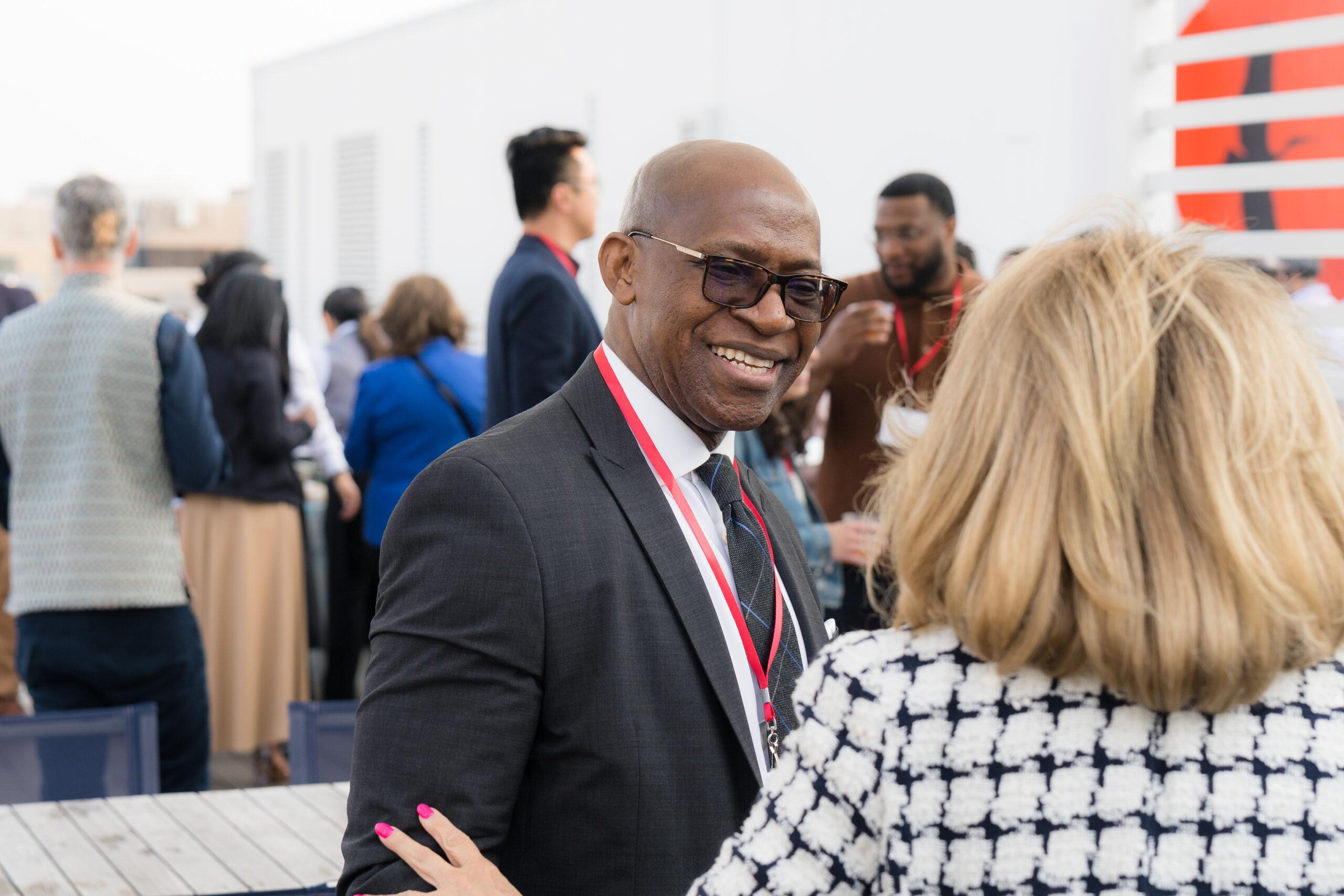By Lauren Bell
On August 15 Dr. Peter Nwosu became the 11th president of State University of New York-Oswego. Dr. Nwosu, a lifelong advocate for equitable access and success in higher education, has also served on IHEP’s Board of Directors since February 2021 and is currently Board Chairperson. Until early August, he was Provost and Senior Vice President for Academic Affairs and Student Success at Herbert H. Lehman College of The City University of New York (CUNY) where he oversaw key aspects of the institution’s mission and strategic goals.
IHEP recently spoke with President Nwosu about what inspires his commitment to college access and success and how IHEP’s research and advocacy inform his work. 
This conversation has been edited for length and clarity.
IHEP: What inspires your commitment to advancing equitable access and outcomes for students?
President Nwosu: My inspiration is rooted in my experience as an immigrant student who journeyed to this country from Nigeria many years ago. The pair of shoes I was wearing still serve as a reminder of that journey, and of my pursuit of education, which brought me to this country. Those shoes, still proudly displayed in my office, remind me that I would not be where I am today without education.
When students begin their college journey, they arrive in their own shoes. They have their own histories, strengths, and aspirations for their futures. I see myself in our students. Each is inspired by the life transformation an education provides and the new possibilities it can ignite, just as I was.
As a faculty member, then administrator, and now as the President of SUNY-Oswego, I ask myself, “Would I be in these roles if I didn’t have that opportunity?” It has been an extraordinary journey, and if I can be here, today’s students can too.
IHEP: What are a few key lessons you’ve learned about fostering academic excellence and student success?
President Nwosu: Our students are able, but we must engage and meet them where they are. This requires faculty and staff to rethink pedagogy, student supports, cultural differences, and learning styles.
Throughout my time in higher education, I have also come to realize the power of data to drive equitable outcomes and academic excellence. For example, analyzing data on student performance in gateway courses reveals high stop-out rates, withdrawals, incompletes, and course failure. None of this is the fault of the students, nor is it the fault of faculty. When we stop pointing fingers and focus on data-driven strategies, we can identify areas for improvement and take proactive steps to address challenges.
Finally, the impact of the pandemic and advancements in technology revealed that the world is not static. We must remain flexible and adaptable to meet the demands of the moment. Curriculum must be renewed constantly to keep up with the ever-changing world.
IHEP: How has your service as IHEP’s board chairperson informed other professional experiences?
President Nwosu: IHEP’s research has shaped my approach to crafting data-informed solutions in my own work. As I envision the next decade for SUNY-Oswego, craft our strategic plan, and position the university for a role in regional economic development, I, in partnership with my new colleagues, will look to data to understand where we are and inform where we want to go.
IHEP: What brings you joy outside of work?
President Nwosu: I find joy in traveling, particularly outside the country, because each journey is an opportunity to learn and grow. I recently visited Elmina Castle, a historic trading post for enslaved peoples, in the Cape Coast region of present-day Ghana. Though emotionally challenging and not a place of joy, visiting such sites serves as a powerful reminder of the atrocities of the past.
As higher education leaders we have a moral responsibility to keep shining a light on past atrocities. When we acknowledge, study, and understand our history, we can move forward and make progress as a society. These meaningful experiences reinforce my commitment to defend what is right.
–
Dr. Nwosu’s inspiring journey and commitment to data-driven decision-making will shape his vision for SUNY-Oswego’s future.




